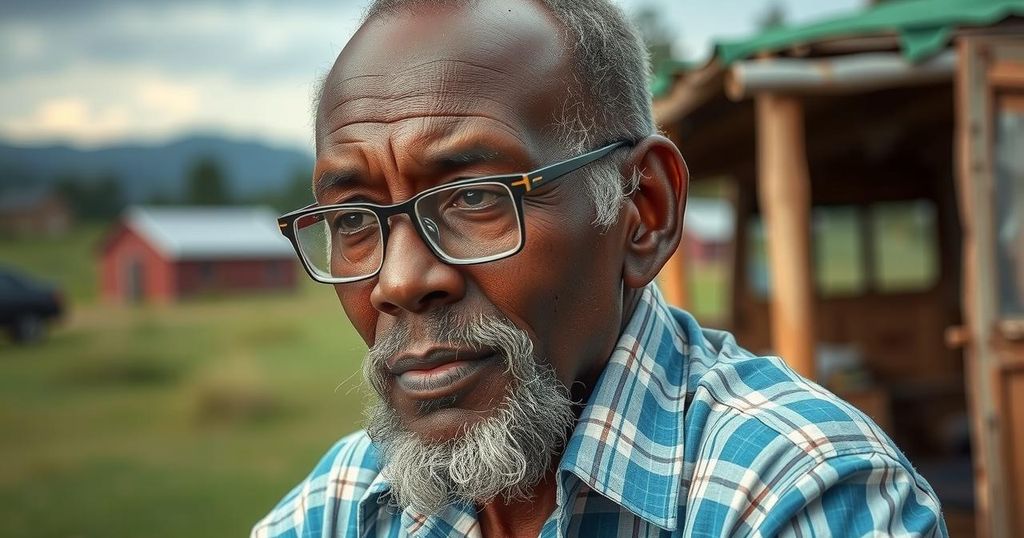Crime
AFRICA, AMERICA, BOSTON, CANTON REPOSITORY, COURT CASE, COURT SENTENCING, CRIME, DEATH PENALTY, DONALD L. CABELL, ERIE NSHIMIYE, GOODYEAR TIRE & RUBBER, JUSTICE, KANSAS, KERNS, LEGAL SYSTEM, MASSACHUSETTS, MO, MOAKLEY, NORTH AMERICA, NSHIMIYE, REPOSITORY, RWANDA, STARK COUNTY, U. S, U. S. JUSTICE DEPARTMENT, UNITED STATES, WICHITA, YOUNGSTOWN
Marcus Chen
0 Comments
Federal Trial Awaits Stark County Engineer Over Rwandan Genocide Allegations
Eric Nshimiye, a Stark County engineer, stands accused of false statements concerning his past involvement in the 1994 Rwandan genocide, as he awaits trial in Boston. Although adamant about his innocence, his attorney alleges that he was not in Rwanda during the genocide. The prosecution claims to have witnesses to support their assertions of his participation in violent acts during that period. The case has resurfaced larger discussions about the complexities of historical narratives and accountability following the genocide.
Eric Nshimiye, a 53-year-old engineer from Stark County, Ohio, is currently awaiting trial in federal court on charges primarily related to alleged false statements regarding his past, specifically his involvement in the Rwandan genocide of 1994. Although not directly charged with any acts of murder or rape, Nshimiye is accused of lying to secure his entry and stay in the United States since 1995. The trial is scheduled for Boston, where he was moved after his arrest in March 2023, but no date has yet been set. His defense contends that he was not in Rwanda during the genocide, seeking evidence to support his case.
Nshimiye’s family maintains that he has been wrongfully accused, asserting that he is focused on family life and community, being an active member of his local church and known for his good character. Legal proceedings surrounding Nshimiye have drawn attention due to the complexities of prosecuting historical crimes of this magnitude, especially when addressing actions that occurred over thirty years ago. Nshimiye’s attorney, Kurt Kerns, emphasizes that his client is not listed among individuals wanted by Rwandan authorities for genocide.
Prosecutors, however, present a stark portrayal of Nshimiye, alleging that he committed brutal acts against Tutsis during the genocide, including murder and assault. They claim to have eyewitness testimony supporting these accusations. Discussions surrounding the topic have also raised broader questions regarding the historical narratives surrounding the Rwandan genocide and the motivations of current Rwandan leadership.
Expert Susan Thomson has questioned the perceived singularity of the genocide narrative, suggesting that the situation was more nuanced. She argues that while the genocide cannot be excused, the political context surrounding it complicates the depiction of Hutu leaders and the narrative adopted by the Rwandan Patriotic Front under Paul Kagame. She cites concerns about governmental repression of dissent in Rwanda, indicating that similar fates could await outspoken figures like Nshimiye.
The Rwandan genocide is a harrowing chapter in African history that erupted in April 1994, leading to the systematic extermination of an estimated 800,000 Tutsis and moderate Hutus over a span of approximately 100 days. The event was marked by extreme violence, and its implications extended far beyond borders, with individuals involved facing various legal challenges decades later, particularly regarding immigration issues in the United States. The complexities of justice for actions taken in such catastrophic circumstances have continually challenged the legal system, especially when individuals attempt to create new lives in foreign countries, raising intricate questions about accountability and historical interpretation.
In conclusion, Eric Nshimiye’s fate encapsulates the challenges faced by individuals confronting accusations stemming from historical atrocities. While he awaits trial and asserts his innocence, the legal proceedings highlight ongoing debates about the Rwandan genocide and the narratives constructed around it. His case amplifies questions about accountability, the complexities of immigration law in relation to past actions, and the pursuit of justice for survivors and accused alike. The impact of Nshimiye’s trial may reverberate beyond individual aspirations for clarity, shedding light on the intricate intersection of personal histories and national narratives.
Original Source: www.the-review.com




Post Comment